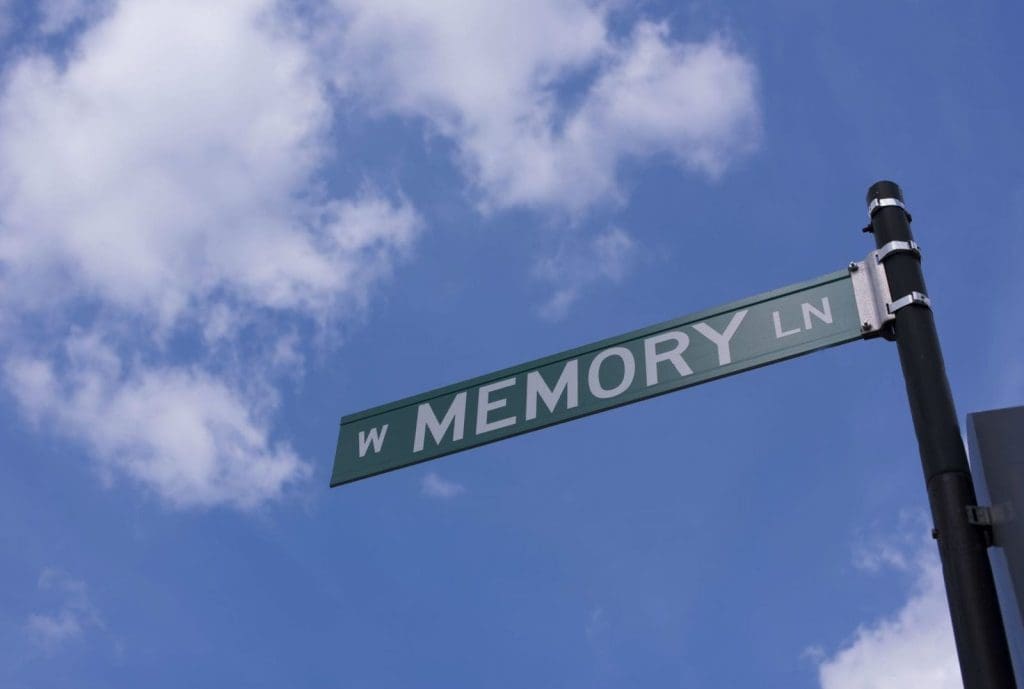One year ago, I was frantically running around preparing for a week-long trip to Seattle to attend my god brother’s wedding. Today, the thought of pre-travel planning and all that it entails seems like a foreign concept to me as I look towards the immediate future with no concrete plans in sight, outside of working from home 40 hours a week and spending the weekends inside with my cat, my husband and a generous supply of middle shelf Pinot Grigio.
At the beginning of COVID-19, many people began writing about this pandemic-induced nostalgia they were experiencing. A nostalgia for standing a couple of feet away from friends without feeling uncomfortable. Sitting inside a Five Guys watching your fries sizzle in a vat of peanut oil. Walking around the mall and trying on clothes you didn’t intend on buying. A nostalgia for a pre-COVID normalcy.
Can Nostalgia Help Us Cope with 2020?
Perhaps in the height of the chaos, this longing didn’t resonate with me as intensely as it does now. At the time, I thought, why dwell on recent past experiences? Isn’t that just depressing and counterproductive? Shouldn’t we just move forward and learn to adapt? But what if nostalgia could help us cope with 2020?
Today, nearly five months deep into a COVID landscape with daily case reports fluctuating at rates I can no longer comprehend and a foreseeable future appearing as grim as the reaper himself. The past has never looked better. As I glossed over pictures from my past trip to Seattle, I expected to feel a pang of overwhelming sadness. Instead, I was engulfed by a wave of optimism that felt as foreign to me as pre-flight check-in.

When Nostalgia Was a Disorder
Prior to the 19th century, nostalgia was considered a psychopathological disorder synonymous to depression. The term “nostalgia” is derived from the Greek “nostos,” meaning homecoming, and “algos,” meaning pain. It was later coined by Swiss doctor Johannes Hofer in 1688. Until the 1950s, nostalgia did not expand beyond the notion of homesickness as Hofer had originally defined it. And by the 1970s, it began to shift towards a bittersweet connotation. However, it wasn’t until the 1990s when psychologists began to study its psychological benefits and recognize it as a positive emotion that merely involved a wistful affection towards the past.
While negative perceptions toward nostalgia have relaxed within the past 30 years, most of us still experience a sense of guilt relishing in our pasts. Recent studies have shown that nostalgia can actually serve as a self-soothing tool that can help us strengthen our self-purpose and regain a sense of continuity in times of uncertainty. So it may actually be able to help us cope with 2020.
Nostalgia Can Motivate Us
It seems illogical to think that a trip down memory lane can actually help us move forward. A mere five months ago, my motivations and goals were substantially different than they are now. I was planning a wedding, looking at houses and researching grad schools. I was at one of the most optimistic points in my life. While I thought reflecting on this particular period would lead me to fixate on my losses, it reconnected me to a version of myself I’ve felt disconnected from for some time. Accessing memories tied to a time when I felt my most productive not only reminded me of my past ambitions, but more importantly, that I’m still an ambitious person. I still want the same things and I can still achieve them, even if it takes longer than I had expected.

Nostalgia Can Help Restore Our Relationships
Many of us have seen the ugly in everyone at this point. During a time of high stress, many of our relationships have succumbed to the negativity effect. A tendency to elicit stronger reactions towards negative occurrences over positive ones. Instead of rehashing an old argument or fixating on each other’s transgressions, try digging up some memories that bring you back to a positive experience. Ones that carried your relationship to the place it’s in today.
Nostalgia Can Help Us Feel More Content with the Present
Let’s face it, it’s hard to live in the present. Nearly every news outlet is broadcasting discouraging information around the clock. Travel plans are on hold for the foreseeable future. And our general way of life completely altered. How can we feel anything aside from discontent? While nostalgia was long regarded as unhappiness for the present, looking back can help remind us of how far we’ve come. It can help us remember past challenges we’ve endured that lead us to the place we’re at today. It can help us cope with 2020. And most importantly, it can give us hope. Like any critical period in time, we will not only get through this, but one day look back and think “those were the days.” Even if we were stuck indoors, with no plans in sight.
Cheese enthusiast and friend to all cats.
- Moneika Okawahttps://thedigestonline.com/author/mokawa/
- Moneika Okawahttps://thedigestonline.com/author/mokawa/
- Moneika Okawahttps://thedigestonline.com/author/mokawa/
- Moneika Okawahttps://thedigestonline.com/author/mokawa/


